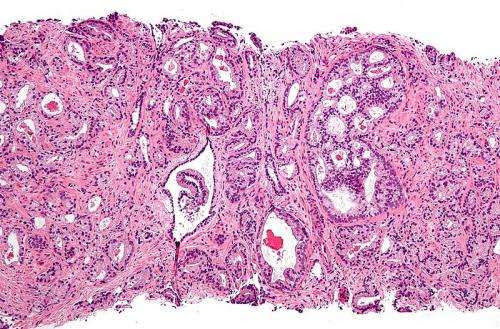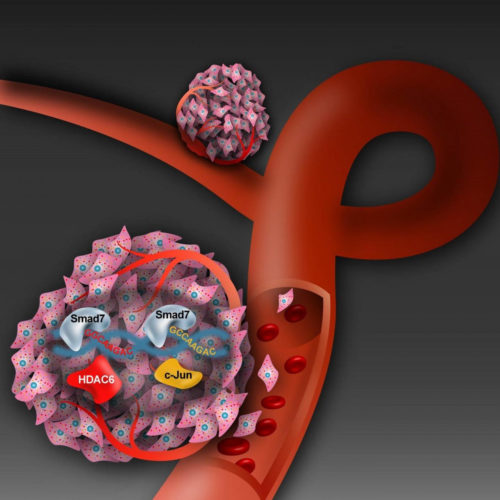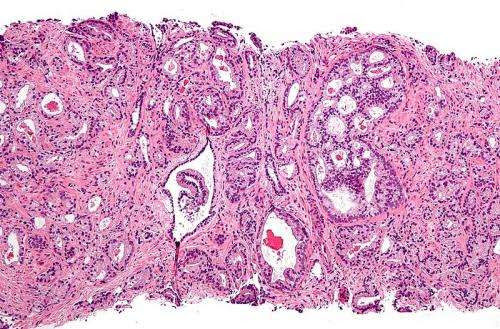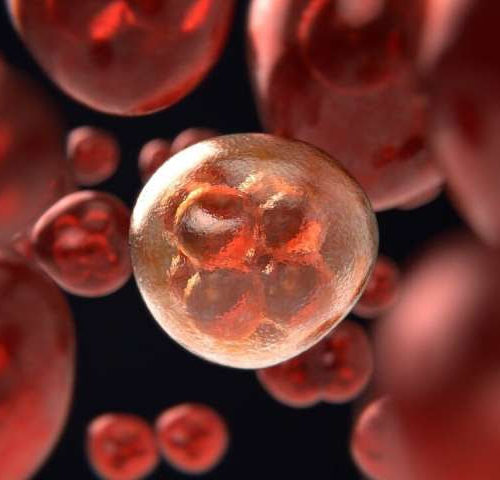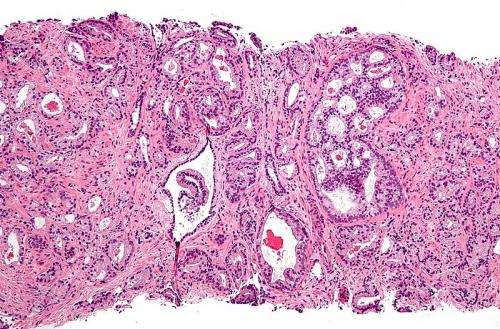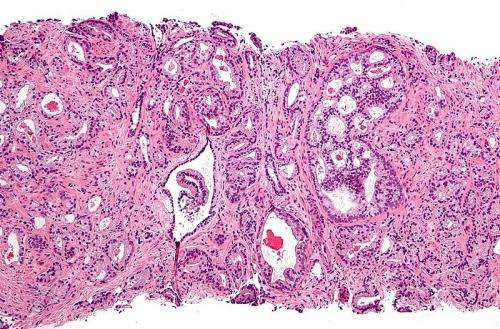by University of Texas M. D. Anderson Cancer Center Micrograph showing prostatic acinar adenocarcinoma (the most common form of prostate cancer) Results from a Phase II trial led by researchers at The University of Texas MD Anderson Cancer Center suggest that a combination of ipilimumab (anti-CTLA-4) plus nivolumab (anti-PD-1) can generate durable responses in a subset...
Tag: <span>Prostate cancer</span>
Novel insights of how prostate cancer causes secondary tumors
UMEA UNIVERSITY ILLUSTRATION OF HOW THE PROTEIN SMAD7 ENHANCES THE DEVELOPMENT OF TUMORS BY REGULATING THE GENE EXPRESSION OF HDAC6 AND C-JUN. view more CREDIT: KEMAL AVICAN An increased awareness on a molecular level of what mechanisms prostate cancer cells use to become mobile and start spreading may in the long run provide new opportunities...
PARP inhibitor becomes new treatment option for some men with advanced prostate cancer
by University of Chicago Medical Center Results from an international clinical trial found that men with advanced prostate cancer who have mutated BRCA1/BRCA2 genes can be treated successfully with a targeted therapy known as rucaparib, resulting in recent FDA approval. Prostate cancer is the most common cancer and the second leading cause of cancer death...
Developing a blood test for prostate cancer
Interview conducted by Emily Henderson, B.Sc. Professor Pockley among other researchers from the John van Geest Cancer Research Centre have recently developed a blood test for the detection of prostate cancer. News-Medical spoke to Professor Pockley to find out more! What provoked your research into the detection of prostate cancer? Why is there an urgent...
Scientists identify new target for wide array of cancers
by Brian Wallheimer, Purdue University Many types of human cancers exhibit changes in kinase and phosphatase balances. Drugs that inhibit kinase activity have shown success in the clinic as cancer therapeutics, but the phosphatases still remain a largely underexploited target class due primarily to the lack of understanding of how they cause diseases. Purdue University’s...
Adverse effects from cancer drug trials explained
NORWEGIAN UNIVERSITY OF SCIENCE AND TECHNOLOGY A team of researchers investigating how a certain type of drugs can kill cells has discovered that these drugs can do more harm than good when used in combination with other cancer treatments. The researchers wanted to know more about how the drugs, which are called pan-Bcl-2 or Bcl-xL-specific...
Researchers Optimistic After Dose-Determining Trial of Compound Against Metastatic Castration-Resistant Prostate Cancer
This news or article is intended for readers with certain scientific or professional knowledge in the field. A new multi-institution, dose-determining clinical trial of a compound against metastatic, castration-resistant prostate cancer showed promising results, researchers reported in Clinical Cancer Research. The phase 1b/2a study of the pan-BET bromodomain inhibitor ZEN-3694 in combination with enzalutamide was...
Google AI outperforms general pathologists at validating Gleason grading of prostate cancer biopsies
by Bob Yirka , Medical Xpress A team of researchers from Google Health, working with others from institutions across the U.S. and Canada has found that a Google AI system was able to outperform general pathologists when validating Gleason grading of prostate cancer biopsies. In their paper published in JAMA Oncology, the group describes two...
Researchers identify possible drug target for prostate cancer
by Boston University School of Medicine Researchers from Boston University School of Medicine (BUSM) have discovered that the protein BRD4 could be an important new target to prevent castration-resistant prostate cancer metastases. Castration-resistant prostate cancer is a highly aggressive form of prostate cancer that often leads to the development of lethal metastases that kills more...
Potential causal role of human papilloma viruses (HPVs) in prostate cancers
by BioMed Central Human papilloma viruses (HPVs) – a common group of viruses known to cause cervical cancers—may also have a causal role in prostate cancer, according to a literature review published in the open access journal Infectious Agents and Cancer, supporting the case for universal HPV vaccination. James Lawson and Wendy Glenn, at the...

